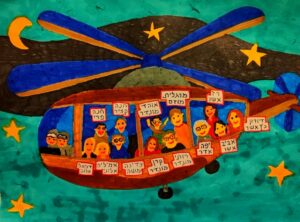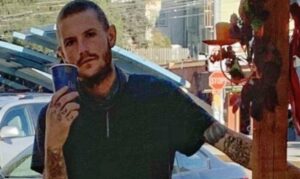
The Trump Administration’s erratic response to the coronavirus has mindlessly pivoted between posing as if the virus does not exist, is a hoax, etc., and taking absurd measures against a variety of undesirable populations in the guise of pandemic prevention policy. After the flop of Trump’s Tulsa rally, this morning ushers new xenophobic measures: limitations on temporary work visas, which have infuriated tech companies. Thankfully, the news are less dire for international students: colleges, employers, and even some Republican Congress members successfully lobbied to remove Trump’s planned restriction of the OPT visa program, which allows students to work in a job related to their field for at least one year after graduation (three in some science and technology fields.)
My professional and social circles feature many non-U.S. folks working in highly skilled jobs in the U.S., and everyone’s stress and relief were palpable. Even those unaffected by the news were rattled by the prospect of having one’s education halted. I get it, viscerally–I was an international student in the U.S. between 2001 and 2005, first on a J-1 visa sponsored by Fulbright and then on a F-1 visa sponsored by UC Berkeley.
My grad school experience was considerably colored by the events of 9/11, which happened just a few weeks after I arrived in the U.S. At first I struggled to grasp the immensity of the catastrophe, as my psyche was desensitized by decades of suicide bombings back home. But it soon became clear that many political, social, and economical assumptions were to be upended by this tragedy. Embroiled in one new war, then another, amidst conspiracies and factual obfuscations, the US transformed its international relations as well as important aspects of its domestic life.
I was at Berkeley; all around me were friends, colleagues, and professors who were vehemently opposed to the war. For the life of me, I could not fathom who had voted for Bush. It was hard to reconcile my distaste for unwinnable, sticky warfare and the massive destruction it would bring with my sense as an Israeli during the Gulf War of 1991 that the Americans had a duty to protect “us”.
It quickly became apparent that the landscape for foreigners in the United States was going to be different. My trips in and out of the U.S. became stressful events involving long lines, paperwork, multiple identification methods and interrogations. In 2003 I flew to Israel to conduct fieldwork for my dissertation. While there, my J-1 visa sponsorship ended (Fulbright sponsored me for two years) and I had to undergo a process to transfer the sponsorship to Berkeley and change the visa type to F-1. My application got bogged down in the general 9/11 paperwork brouhaha and my departure back to school was delayed by months (extremely stressful at the time but, in hindsight, a blessing in disguise, as I was able to conduct a lot more field observations, including two full criminal trials for conscientious objectors.) My return trip in 2003 was unforgettable. At JFK, my passport was taken away from me and I was diverted from the normal immigration line to the secondary room, where we had no access to washrooms and were forbidden the use of our phones. Not a single person in the room, which was full of crying babies and frightened adults and children, held a passport hailing from the global North. It was one of many experiences I had as an international traveler getting a peek (for someone usually carrying considerable social advantage because of my appearance and language fluency) into the lives of people from countries that the U.S. deems “suspect.” After two hours, fearful that I would miss my connecting flight, I obsequiously stammered to the person at the counter. Within a few moments, my passport was returned to me and I left the room, running, leaving behind dozens of equally fearful and timid fellow passengers.
The remainder of my involvement with the U.S. government until I received my citizenship in 2015 was characterized by the dialectic between two conflicting messages. My academic community, including my school, my workplace, and my professional associations, usually (but not always) communicated appreciation for diversity, happiness to have me and other foreigners in the U.S. research world, and a sense of value for my outsider perspective on American criminal justice (a handful of people were dismissive and patronizing, even after decades of living here, but most were great.) All my interactions with the U.S. government, on the other hand, communicated the message that I was an upstart interloper out to steal a job from an American citizen. I remember the hesitation and fear to bring up visa process and funding with potential employers as I was flying to job interviews in America, jetlagged and exhausted. I vividly remember being in a bind when I had to return to the U.S. to take the job at Hastings, with just a few days left to complete my two-years-in-my-home-country Fulbright requirement; they counted every day, including the brief vacation my partner and I took in Istanbul. That the missing days would be spent in Israel during the academic summer vacation, while I would miss the actual semester in the U.S., did not matter. When I found one visa category that would enable me to bypass this problem, the O-1 visas for “extraordinary aliens”, my visa sponsor at Fulbright asked me with a voice full of disdain whether I deigned to think I was extraordinary.
My fear of the government did not subside during the O-1 years, nor did it disappear when I was granted my Green Card in 2009. Any silly, mundane conflict, including a noise complaint to our landlord by our downstairs neighbors, ushered in unreasonable fears of deportation. I steered clear of any environment in which even a whiff of marijuana could be detected, including asking friends (who thought I was paranoid, and probably rightly so) not to keep the stuff in their house while I was there. Before, and especially after, the Snowden revelations, I communicated with all my friends and colleagues under the assumption that every word I uttered or wrote was monitored. Even now, having been an American citizen for five years, my fear has not completely evaporated; I know the Trump administration revokes naturalized citizenships and, living under this unlikely but not impossible cloud, I will never be a 100% inalienable member of my new country.
Keep in mind that this narrative comes to you from a standpoint of considerable social advantage. I did not come to the U.S. from the global South or from a Muslim country, but rather from a country occupying a role in the U.S. cosmology somewhere between petulant child, exotic suspect, and privileged protégé; I am a highly educated professional with a comfortable salary working at a public institution in a blue state. Multiply the fears and entanglements manyfold and you’ll get a sense of how many immigrants and nonimmigrant students and workers experience their interactions with the government. Moreover, consider that I became a citizen during the Obama years, welcomed to America at a lavishly decorated venue in which we received warm speeches about the value of diversity we bring to the country, and invited to stand up when our country-of-origin’s name was called out with everyone cheering us. As soon as we exited, smiling, cheerful people welcomed us to booths where we could immediately apply for a passport and register to vote. A friend who naturalized in 2018 reported very different sentiments; by contrast to the beautifully written letter I received from President Obama in 2015, addressing me as his “fellow American”, he received nothing from Trump, and the cold, unpleasant ceremony emphasized themes of assimilation and erasure.
All of which is to say–these developments, ostensibly for pandemic response reasons but truly a continuation of this administration’s xenophobic persecution project, frighten and upset me. My heart goes out to the people whose world is shaky and uncertain today and to the hundreds of thousands of people who do not even have the privilege to experience this shakiness because their entire experience of living here is rife with the peril of discovery and removal. And most of all–the heart goes out to the children. The poor, frightened children, separated from their parents, and held in concentration camps, neglected, abused, sobbing, dying, growing up in fear and trauma. May we all do the right thing this coming November. This nightmare must come to an end.




1 Comment
[…] ones here are obvious to me because I didn’t grow up here,) I can see a solution. When I became a citizen in 2015, as soon as all of us new Americans exited the beautiful Paramount Theatre where our naturalization […]